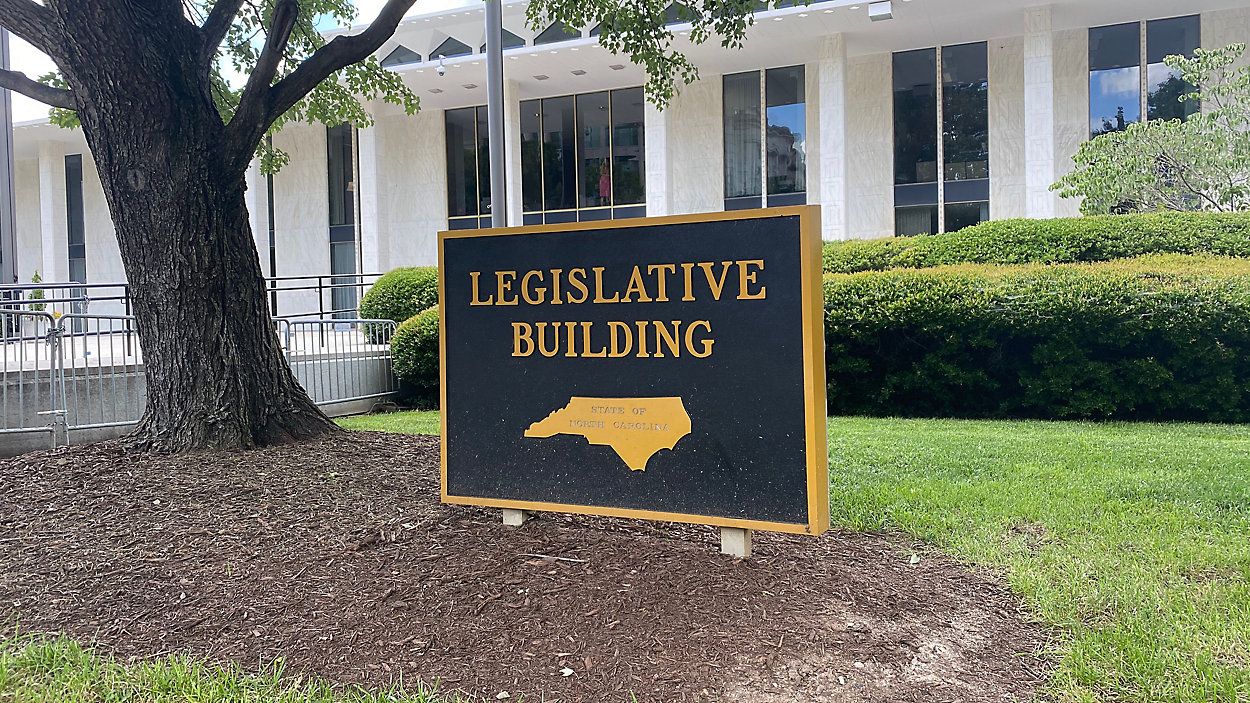A Republican-backed bill could force sweeping changes to election law in North Carolina. The legislation, filed last week, would shorten the time to submit mail-in ballots, change how one-stop voting works, and require the State Bureau of Investigation to look into any major accusations of voter fraud.
The omnibus election bill includes provisions that the governor has vetoed in past sessions, like cutting off the time absentee ballots can be received to Election Day and forbidding counties from getting grant funding to help run elections.
“Our hope is that this will restore some confidence in many citizens in their voting process,” said Mitchell County Republican Sen. Ralph Hise, of Mitchell County, according to The Associated Press.
Republicans in the General Assembly now have a narrow veto-proof majority in both chambers. They have successfully voted to override the governor’s veto on new abortion restrictions and a bill that got rid of North Carolina pistol permit purchase system.
Some news organizations reported recently that Cleta Mitchell was meeting with top Republicans in the General Assembly about the bill. Mitchell is a lawyer who helped former President Donald Trump in his efforts to overturn the results of the 2020 election, according to AP.
"Hise downplayed the former Trump attorney’s role in crafting the bill,” the AP reported.
Democrats and election advocates quickly condemned Senate Bill 747: Election Law Changes.
“Here they go with advice from election deniers and fraud perpetrators. Don’t be fooled. This isn’t about protecting elections. It’s about rigging them to help Republicans,” Gov. Roy Cooper said on Twitter after the bill was filed Thursday.
The bill comes weeks comes little more than a month after the North Carolina Supreme Court overturned an earlier ruling on voter identification. Voters will be required to show photo ID starting with the next election.
“It’s a big lift,” said Damon Circosta, who until recently served as the chair of the North Carolina State Board of Elections. Changing anything in elections takes a massive amount of work at the state and county level, he said.
For changes like those proposed in the new election bill, “there’s a whole lot of planning and logistics that need to happen,” Circosta said.
"The photo ID implementation alone would suck up all of their resources, every waking hour of every waking day, and they still wouldn't be where they want to be," Circosta said.
Absentee ballot changes
Currently, mail-in absentee ballots have to be in by three days after an election, as long as they are postmarked by 5:30 p.m. on Election Day.
The new election bill would require absentee ballots be received by 7:30 p.m. on Election Day. Ballots can still be mailed in or dropped off at the county board of elections on Election Day. But any mail-in ballots that don’t arrive at the county board of elections by the new deadline would not be accepted.
The new deadline does not apply to ballots sent in by members of the military serving overseas or other people living outside the United States. Overseas voters still have the same deadline to get their ballots in before the county canvas, as long as they’re postmarked by Election Day.
The State Board of Elections would also be required to create a system of “two-factor authentication” for mail-in ballots, though the bill does not give much guidance on what that would look like.
One-stop voting changes
At North Carolina’s one-stop early voting sites, people are able to register to vote and cast a ballot on the same day. That ballot is counted along with every other vote cast at early voting sites.
The elections bill would change how those ballots are processed when someone registers and votes on the same day. Instead of an early ballot, people who register at a one-stop site would cast a provisional ballot. That means their ballot would only be counted after their eligibility is confirmed by the county board of elections.
The change could mean delays in counting the ballots of people who register and vote on the same day.
Voter fraud accusations
In order to challenge a voter’s eligibility, the challenge has to come from someone who lives in the same precinct, according to current North Carolina election law.
The election bill would change who can challenge another voter, allowing anyone in the same county to file a challenge. Expanding who can challenge voters could increase the number of challenges in an election.
Election grants
The bill would ban county boards of elections from taking donations or grants to help administer elections. The governor vetoed a similar bill two years ago.
“Elections are fundamental to our democracy and in 2020, grants from nonpartisan nonprofits were needed for necessities such as masks, single-use pens and other protective equipment so voters stayed safe during the pandemic,” Cooper said when he vetoed the bill in December 2021.
“The legislature should start properly funding elections boards to ensure accessible, safe, and secure elections every time, which would end the need for grants," the governor said.
What does jury duty have to do with election law?
The bill requires the State Board of Elections to go through the voter registration and citizenship status in a quarterly report from the state’s courts about people who have been called to jury duty.
The board would have to check to see who was disqualified from jury duty because of their citizenship status. Those names would be passed to the county elections boards. This would not include people who recently became citizens.
The bill instructs the state elections board to investigate each person who may have voted without U.S. citizenship. The board would be required to send the results of any investigations to a county district attorney for prosecution.




